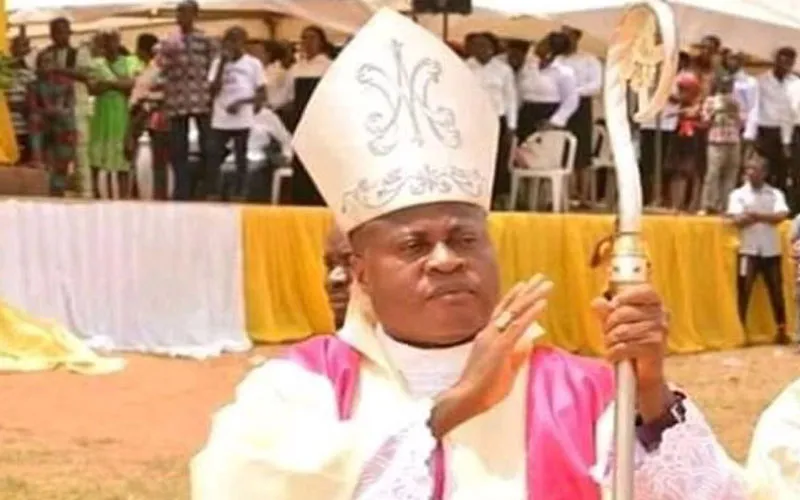Ekwulobia, 06 March, 2020 / 2:59 am (ACI Africa).
Pope Francis on Thursday, March 5 announced the establishment of the diocese of Ekwulobia in south eastern Nigeria and appointed Bishop Peter Ebere Okpaleke, previously rejected by a section of the clergy and lay faithful of Nigeria’s Ahiara Diocese, as its first Local Ordinary.
In a message published by the Holy See Press Office, the Holy Father also appointed Fr. Ildevert Mathurin Mouanga as the Bishop of Congo-Brazzaville’s Kinkala diocese, taking over from 77-year-old Bishop Louis Portella Mbuyu.
The Papal assignment of Bishop Okpaleke, a clergy of Nigeria’s Awka diocese, to the newly created diocese of Ekwulobia gives the 57-year-old Nigerian Prelate an opportunity to exercise his episcopal ministry, having been forced to resign as the Local Ordinary of Ahiara diocese in February 2018.
“The situation in Ahiara Diocese to the best of my knowledge has not improved. Most importantly, this has been threatening my spiritual life,” Bishop Okpaleke stated in his letter of resignation referencing the sustained opposition to his appointment from a section of the clergy and laity of Ahiara Diocese since his appointment as Bishop in December 2012.
“I am convinced, in conscience that my remaining the Bishop of Ahiara is no longer beneficial to the Church,” Bishop Okpaleke stated in the February 14, 2018 letter addressed to Pope Francis adding, “I do not think that my apostolate in a diocese where a group of priests and lay faithful are very ill disposed to have me in their midst would be effective.”








